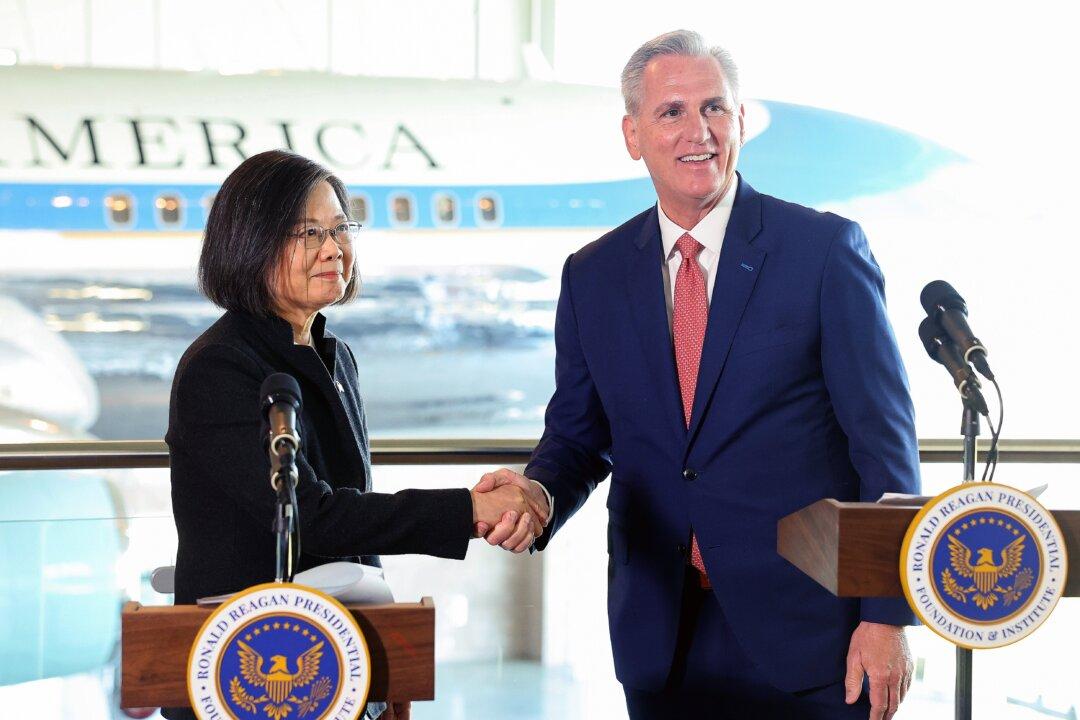A group of House Republicans is calling on the Biden administration to support Taiwan by inviting the island’s democratically elected president to the Asia Pacific Economic Cooperation (APEC) summit, which will be held in San Francisco in November.

Speaker of the House Kevin McCarthy (R-Calif.) (R) and Taiwanese President Tsai Ing-wen (L) shake hands in the Air Force One Pavilion at the Ronald Reagan Presidential Library in Simi Valley, Calif. on April 5, 2023. Photo by Mario Tama/Getty Images




